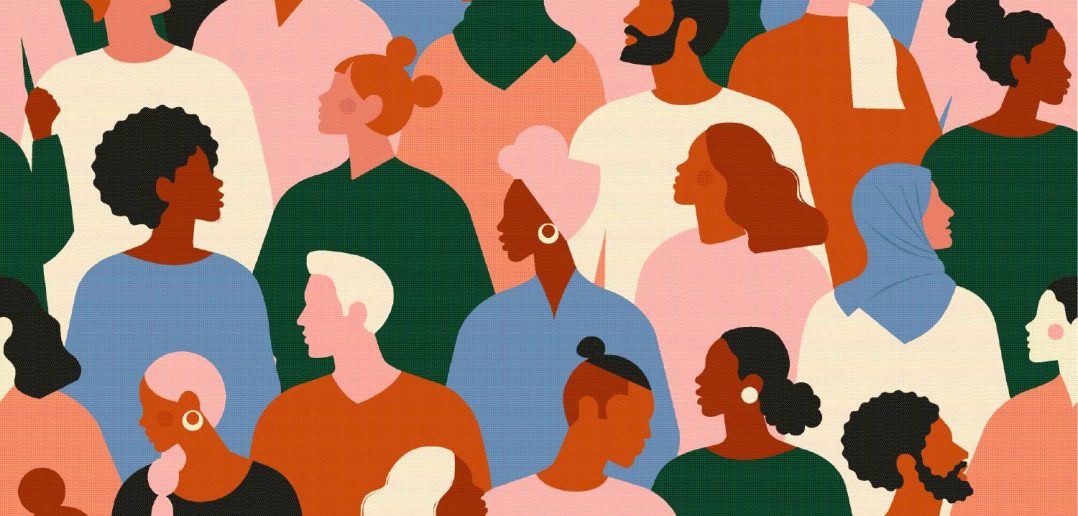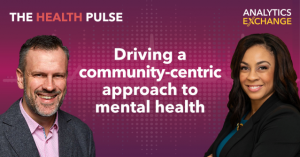In an episode of The Health Pulse hosted by Greg Horne, we learn about Dawnté Early, PhD, whose idea and mission is to transform the mental health system so that everyone who needs care receives high-quality and culturally competent care. Early's work focuses on bringing together individual mental health data to identify social determinants of health and uncover disparities.
Listen to Dr. Early's full episodeDawnté Early's career began in California's Department of Health Care Services and later she worked with the California Department of Corrections and Rehabilitation looking at the impact that health insurance has on recidivism.

Her career has taken her to the Mental Health Services Oversight and Accountability Commission (The Commission, for short) where she, as Chief of Research and Evaluation, uses data to look at transforming California's mental health system so that everyone who needs care receives high-quality and culturally competent care.
How is The Commission using data to dig into social determinants of health?
Early: We started off with connecting mental health consumer data at the individual level to criminal justice data from the Department of Justice.
And since then, we've gone on to link with quarterly wage data from the Employment Development Department, and we recently got death and birth records from our Public Health, and then we will also be getting education data or school data from the California Department of Education. We're also looking at disparities across these different systems, whether that be racial/ethnic disparities, gender disparities, age-- and so focusing on older adults, but also looking at focusing on youth and transitional age youth.
If you think about it, when you have health care, you can stay healthy. You can keep a job. And the number one predictor of recidivism is not having employment. It's amazing what happens when you can pay your bills, feed your family, and keep a roof over your head.
How do we overcome stigma in mental health?
Early: Normalizing that we all have mental health needs in some way or have families that have mental health needs and that it is not something that we need to, hide but in fact, something that we can receive support for and receive services for, I think that's so important for reducing stigma. One of the things we also try to, what I would say, is to be conscious of is even in the language that we use for our policy reports, for our data results, for our transparency dashboard, we try to use humanizing, human-centered language.
How has your work managed to overcome hurdles to funding in providing needs-based outcomes?
Early: Well, I think that actually points to one of, I would say, our first findings. And one of the reasons why we took the first project that we did that I talked about, which was that linkage work that we did with Department of Justice data, looking at the impact of full-service partnerships, that whatever-it-takes services on reducing criminal justice involvement.
RELATED: Dawnté Early: Helping data speak for those who can’t
For so long, we knew anecdotally that it was having an impact. And then within the data that we were collecting within the program, we had again respondent data, participant data of what they were seeing their criminal justice involvement was pre, post, and during programming.
But by being able to link it to statewide administrative data, to link it to this, we were able to show a reduction of 67 percent from pre to post for those who had three or more arrests a year before participating. That was huge. And so when you talk about how do you ensure the funding, first I think it's so important that you show the impact.
One of the key central reasons for full-service partnerships is to reduce criminal justice involvement. We have shown that it's reducing criminal justice involvement. And so it's a lot easier to get funding for programs that you show work.
You now have individuals who are with their families, being able to participate in the community, and getting the services that they need. And again, having a mental health need is not a crime, and therefore shouldn't be treated like a crime. And so, if we can get individuals the services that they need in the community, then we're all better.
What does the future hold?
Early: What I'm seeing in the future is starting to be able to tell a fuller, richer picture of, for instance, what does the school-to-prison pipeline look like, and how do we truly prevent and intervene in there?
RELATED: Video: Whole person data empowers mental health services (SAS Global Forum)
And then what does it look like when you provide children with the services that they need? Do we see better employment outcomes? Because remember we have that quarterly wage data, but even more importantly, I want to follow-- again, my PhD is in human development. I want to follow people across the lifespan. I want to go from school all the way to death and birth.
And we are also getting death and birth records. So what does it look like for a mental health consumer to have a longer life? We know that mental health consumers have shorter lifespans, higher mortality rates, and so how do we intervene? How do we truly go, like we talked about, upstream? With all of this different data that touch all of these different systems, we will now be able to look at that full picture.


